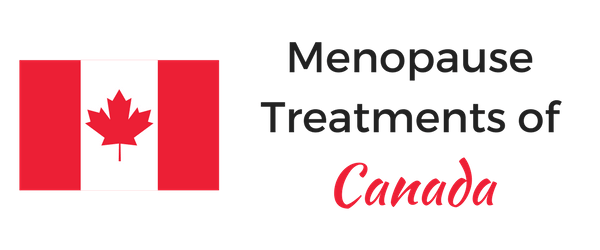
Menopause is a unique experience for every woman and it can bring around a wide array of symptoms brought about by the fluctuations of hormone. The best means of managing the signs and symptoms is to gather an insight about the treatment options along with the risks and benefits of the various therapies prevalent. The Society of Obstetricians and Gynecologists of Canada has assimilated the most reliable and updated information regarding this crucial juncture of women’s life and it is time for you to make yourself aware of them.
Understanding menopause:
Technically, menopause is the time when a woman experiences no menstrual period consistently for a year. Perimenopause is that span which leads to this clinical milestone. The symptoms may start occurring earlier but most women start experiencing the physical and emotional alterations of perimenopause during the late 40s when the monthly cycles start altering and the production of female sex hormones become unpredictable.
Symptoms of menopause:
Some women have difficulty during menopause while others may not suffer from any kind of uncomfortable symptoms. The fluctuations of hormone levels can lead to night sweats, hot flushes, aches and pain, irregular period cycles, an alteration in sex drive, mood swings, bladder control difficulty, changes in appearance and texture of the skin, disruption in sleep patterns and memory loss. Some of these symptoms can be linked to other clinical conditions as well.
Diagnosing menopause:

You might need to undergo various tests to ensure whether you have reached menopause or started perimenopause. In Canada, the doctor and the patient works together to discuss the symptoms and what can be attributed to it.
If a patient has heavy but irregular periods, the gynaecologist will work on several tests for finding out the exact cause. Heavy bleeding is regarded as a normal sign of menopause but it may also stem from infection, disease or a pregnancy complication.
Seeking treatment:
Menopause is a natural part of a woman’s health and aging process. In Canada, menopause treatment is not given unless the symptoms turn uncomfortable. The hormone menopause guidelines state that if the symptoms are not bothersome, then you need not undergo any treatment. The first and foremost thing is to have a healthy lifestyle.
There are several treatment options which you can choose according to your suitability. Some doctors recommend a combination of the available therapies for getting a desired effect. Here are some of the most common treatment options:
Non-hormonal therapy: For some women hormone menopause guidelines are not an option to consider. Other prescription medications can help in mitigating mood swings, hot flashes and depression. Recent studies indicate that if you have vasomotor symptoms, antidepressants can show promising results (but could have side effects). There are several drugs available in the market that can have desired effects on the patients when taken under the guidance of an expert.
Bio-identical hormone therapy:
The Society of Obstetricians and Gynecologists of Canada supports the statement of the North American Menopause Society. They do not support the use of custom compounded bioidentical hormone therapy. These medications have some benefits but they can bring along some risks and complications as well.
Hormone therapy:
With ageing, there is a lack of optimum hormone secretion which, in turn, can lead to emotional and physical alterations which can cause a lot of troubles. It is prescribed for boosting up the hormone levels. Current research indicates that hormone therapy is not just effective but safe for treating symptoms of menopause. But it is important to consult with a gynecologist before undergoing such treatments.
Complementary and alternative therapy:
Non-prescription therapeutics which may include complementary and herbal treatments can aid in relieving the symptoms of menopause. Herbs, minerals, vitamins and homeopathic treatment are included in alternative therapies. Foods containing phytoestrogens also have positive effects on the menopausal symptoms.
Complementary approaches for managing menopause symptoms can have positive effects as well. Keeping the room temperature cool while sleeping, taking cold water and dressing up in layers can also help night sweats mitigate. On the other hand, exercising, losing weight, and quitting smoking and alcohol may also be suggested for women encountering menopause related physical issues.
- https://www.healthlinkbc.ca/health-topics/hw228763
- www.menopauseandu.ca
- http://www.menopauseandu.ca/hormone-therapy_e.aspx
- http://www.menopauseandu.ca/therapies/non-hormonal-therapies_e.aspx
- http://www.menopauseandu.ca/therapies/bioidentical-hormone-therapy_e.aspx
- http://www.menopauseandu.ca/therapies/bioidentical-hormone-therapy_e.aspx




This form is protected by reCAPTCHA and the Google Privacy Policy and Terms of Service apply.